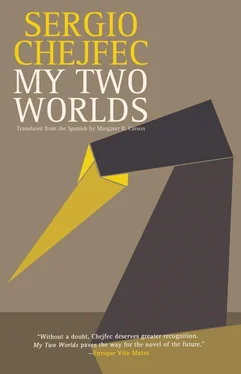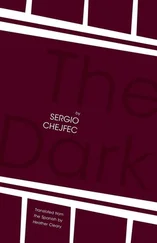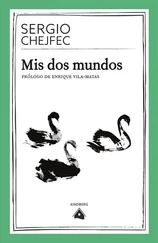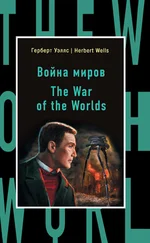I won’t expand on this too much. My hypothesis is that at a subsequent moment the artist noticed that in the dramatic world of his drawings, it was unnecessary for objects or individuals to have eyes in order to establish mutual relationships. In the end, a dotted line was able to render a relationship that was as invisible as any gaze. This has made the drawings seem subject to a process of nonstop self-generation, it’s something otherwise self-evident. It seems a world created out of geometry, and thus tending towards, or involuntarily, metaphysical. But this has also permitted a second success, I don’t hesitate to call it that, which consists in highlighting the materiality of his work, its deep and genuine artifice, because the dotted lines exhibit the intensive construction that shapes them and organizes the work. It’s a work that displays itself being made, insofar as the procedure — the lines and dots in constant transformation — is comprised in the sequential development of the stories.
From the time of this discovery, my Felix of Kentridge (put that way, he sounds like a distinguished personage or a nobleman) became my secret coat of arms. I ought to say “my Felixes,” since they take on differing personalities and are moved by different motives. For quite some time, in my private language — the unspoken one that belongs to me exclusively and which I use only in my constant mental soliloquies — to feel “like a Kentridge character” is my way of expressing the worst possible condition, the level beneath which one is unable to live. Feeling that way means being squashed to the ground, pulverized as a result of an act of vengeance of matter itself and undone until the next, but still uncertain, resurrection. Because apart from that, these characters have no moral alibi, they’re not able to escape the blame or responsibility the story itself places on them. They can only express a diffuse suffering, between physical and spiritual, although they don’t always do so, just like me. True suffering is a borrowed emotion, assigned by a viewer on seeing Felix’s face in close-up as he looks at himself in the mirror, for instance, or when thanks to the transformation of his features, he reaches old age in two or sometimes three seconds.
I felt, then, that I was in the presence a painting of a lacustrine type. The swan was looking at me head on and fixedly, and the father and daughter, though only a few meters from where I sat, pretended to be absorbed in contemplating the environs. When the waiter emerged from the building to come to me, the swan began to retreat, surely thanks to the reverse capability of the pedal mechanism. It seemed to me to be backing off in order to make a final charge, but it promptly whirled around, pointing its tail to the right, and set off at once in forward gear. The pedalinho left the shore behind; I could now see the heads of the crew peeking out above the animal’s hindquarters, probably unaware of what they were leaving behind them. A second later, the waiter arrived and I ordered a coffee.
An intense and perhaps prolonged digression then began, from which not even the waiter himself could distract me. The swan kept getting farther away, as if this were the end of a movie, or as if the father and daughter, reconciled with the animal world after their adventure, were truly able, thanks to the kindhearted bird that transported them, to find their way back home. I then imagined the lake and that same park as the anteroom of that great continent — the green denseness composed of plant life and mystery, devourer of people and dignities, pulverizer of souls, the implacable nature I referred to earlier, etc. I remained on the side of civilization, enacting one of the most habitual of writerly scenes: seated at a table in a café, the predictable backpack with literary tools inside it, a cup of coffee or some other vague drink in front of me; that is, circumstances favorable to writing.
I could take out my notebook and start controlling the navigation of my mind in a kind of semi-public session that everyone around me — though no one was present at that moment — would expect and tolerate. But I didn’t do so, even after the waiter had already brought my order and nothing would interrupt me for a good while. The two writer friends have done it. I could even argue that those two books were written entirely in public places, almost exclusively cafés or similar locales. Why should I be any different? What circumstance keeps me from being just like them? I didn’t find the answer then, and I don’t have it now, either.
So on the one hand, I could find no reason not to set about writing in the Café do Lago, but on the other it’s true that for some time I’d begun to feel a sort of cautiousness, or insecurity, when, in one of the few cafés near my home, after certain preliminaries, I’d decide to open my notebook. I’d feel threatened, or closely observed. In fact, it was all in my head; no one was looking at me, or at anyone else. Until one afternoon, it must have been some two or three years ago, after focusing my mind on the idea of the threat — since I couldn’t get over it — while the rest of the café’s customers were reading or writing, carefree, a good number of them doubtless writers as well, I noticed that in fact something else was going on, though similar: what I felt was shame. I was ashamed to write, a feeling that still persists. And like everything shameful, if one wants to put it into practice, one has no choice but to do it surreptitiously.
For a long time I considered writing a private task, which at a certain moment nonetheless had to become public, because otherwise it would be very hard for it to stay alive, in particular and in general. My shame, though, proceeded not only from being engaged in something private in full view of everyone, but also from doing something unproductive, a thing both moderately useless and fairly banal. I felt they’d speak of me as a frivolous character, capable of squandering his time without concern, at a remove from any significant interest. And since I knew myself all too well, I had no choice but to concur with them in advance. Accordingly, my main worry wasn’t so much overcoming my faults and my foolish illusions about writing, but rather, not being discovered. That’s what life boiled down to, I could say as I approached a crucial birthday: not being discovered. All of us have one vital lie, without which routine daily existence would collapse; mine consisted of simulacra, in this case of literature.
Having so often adopted a writerly attitude, I ended up being a writer; and now, in a kind of retrospective panic, I was terrified they’d find me out, just when I was able to consider almost all the dangers cleared away. And the fear was reflected in what was most basic, as always: hands at work, the anonymous circumstance. I no longer feared not being published, or living far from success or recognition, I already knew that those things would always be within my grasp, for better or for worse; I feared that somebody, passing alongside my open notebook, would unmask me as a simple, deliberate impostor. The leaves of my notebook wouldn’t contain sentences, or even words, just drawings that sought to simulate handwriting, or repeating pages with the word “what,” especially “how,” or with disconnected syllables that never made sense.
So I kept the backpack shut, didn’t take out the book, much less the notebook, and once again passed up a session of writing that might have been fruitful, that sometimes happens, in order to sink into a diffuse meditation on the matters I’m in the process of recounting. The table was bare, except for the solitary cup of coffee. In the distance No. 15 looked like a white dot in slow flight, safe from any danger. I thought of my birthday, its charged imminence. Had my hour of reckoning arrived? With different emphases and arguments, one friend as well as the other counsel against it and refuse to take it on, though in their own way they engage in it, that I remembered pretty well. Accordingly, I thought it best to obey them.
Читать дальше












